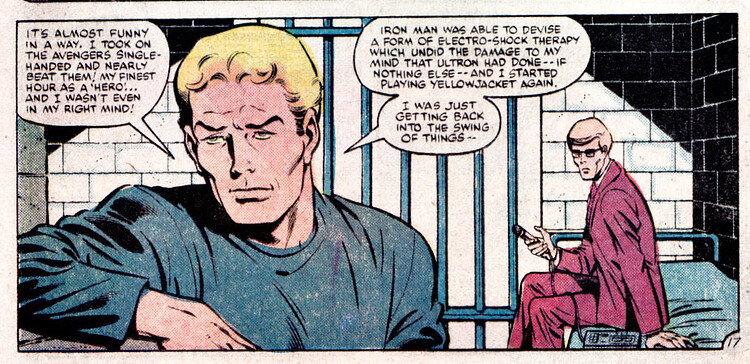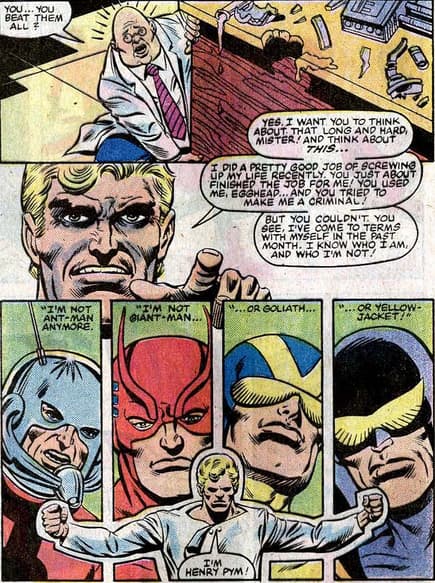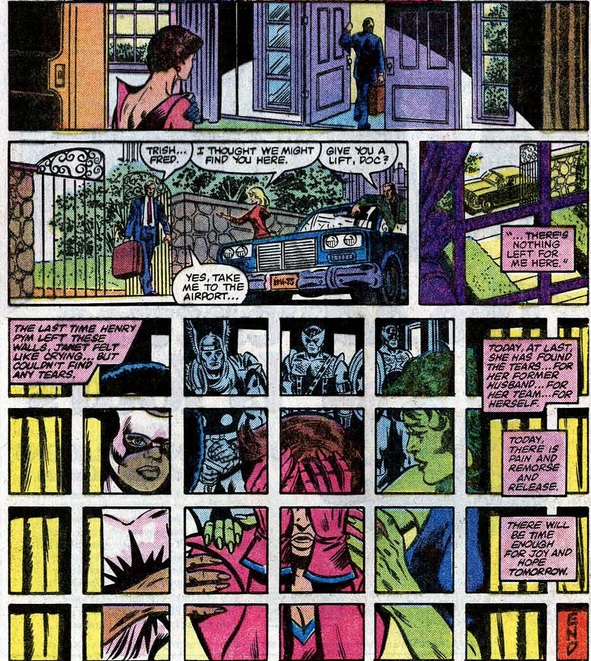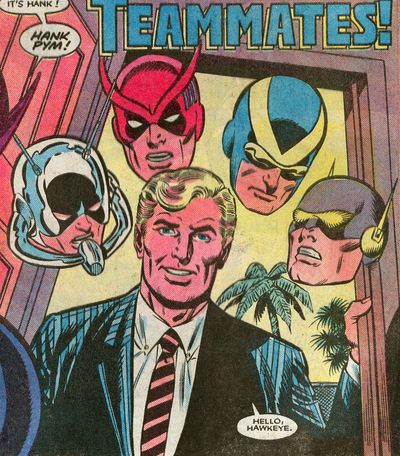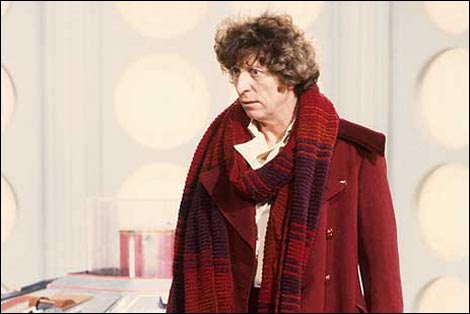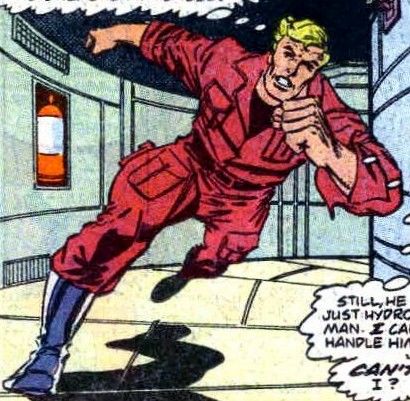Sans doute parce que, finalement, Byrne reprend Pym au moment où Englehart l’a reconstruit. Il n’y a en gros plus rien à faire. C’est le scientifique de l’équipe, le Reed Richards local, et au final Byrne l’utilise de cette manière : il est devant les écrans, il explique des trucs sur les pouvoirs de Wanda, tout ça, en utilisant des terminologies complexes. Bref, il n’a plus d’aspérités.
C est le souci quand un scenariste part avant d aller au bout…
Le souci c’est surtout les suivants qui ne savent pas travailler sur la base de ce qu’ils ont.
J’avais bien aimé quand Busiek avait établi que sa dépression nerveuse avait pour origines sous-jacentes sa culpabilité et sa honte pour Ultron
Busiek reprend les idées de Stern je pense. En voila un qui arrive justement à prendre l’événement à bras le corps, à confronter, à affronter puis à changer
Harras ou Busiek l ont fait pour vision et wanda.
Englehart et Slott ^pour Pym.
Mais il reste ensuite des bendis qui aiment revenir sur des traumas permettant du Drama facile.
Et tous ces scenaristes ont pris trop de temps pour regler les soucis (c st plus credible mais ca prend tellement de temps que le scenariste part)
Busiek reprend les idées de Stern je pense.
Jason Shayer (Back Issue #56) : « As the new regular writer, Stern didn’t waste time getting settled in. He took on the Henry « Hank » Pym subplot, which had been dangling since Jim Shooter’s tenure as writer, and had him face the public charges of kidnapping, theft of government property, and treason. Stern cleverly used a psychiatrist, trying to determine Pym’s mental fitness to stand trial, to flashback through Hank’s past. Pym recounted his early history as a scientist, his relationship with the Wasp, his career as an Avenger, and his fall from grace. His narrative was compelling and moving and wove together 20 years of convoluted history written by several writers, each with their own take on the character. »
"Avengers #230 (april. 1983) wrapped up the Hank Pym storyline and delivered an emotionally satisfying finale to his trial. Pym not only triumphed over the Masters of Evil singlehandedly, defeated his old nemesis Egghead (the first villain he faced back in Tales to Astonish #38, Dec. 1962), but also restored his faith in himself and the faith of his former teammates in him.
Stern could have neatly tied a bow around his story and had Pym rejoin the Avengers, but he didn’t. Instead, Pym took responsibility for his actions, which included undergoing a mento-scan to confirm there was no outside influence affecting him, after which Pym admitted : « It would have changed a lot of things if there had been, wouldn’t it ? But no, I made my own mistakes… and I have to live with them. »
Pym bid farewell to the Avengers and to his life as a superhero. It was an emotional departure for both Pym and the Wasp. the Wasp was strong and confident as the Avengers chairwoman through the prcoceedings, but watching Pym leave broke her heart and she finally gave in to an overwhelming flood of emotions. Bu that emotional ordeal was the catharsis that she needed to move toward standing on her own."
« A few years later, Pym would rejoin the Avengers, but this time as a member of the West Coast Avengers. Writer Steve Englehart embraced the story foundation put down by Stern and made Pym one of the more interesting members of that team. »
Ca se poursuit sous Bob Harras, qui décide que Kang (Immortus, selon le retcon de Busiek dans Avengers Forever) est responsable de sa dépression nerveuse en ayant tenté de le corrompre, jadis.
Sans réussite, Kang (Immortus) se tournera vers Iron Man, révélé comme traître dans The Crossing / Trahison.
Réinvention qui avait commencé chez Englehart.
Ian Millsted (back Issue #76) : « When I got West Coast Avengers, I didn’t have any burning desire to use him (Pym) », says Englehart. But Mark Gruenwald, the editor, decide after a while that he wanted him in the book, and Mark had an idea of what to change him into this time : (Marvel’s answer to) Dr. Who."
« He described a dr. Pym who would not be a costumed hero bout would be a distinctively dressed scientist. This did not thrill me, but I had to do it–so I sat down and took a long look at him, and came to the conclusion he was a loser, so. maybe the storyline that could make him finally work requiert facing that problem head-on, rather than trying to ignore it. thus, I brought him in as the character Mark wanted, but had a clear plan about running the character toward suicide. Obviously, he would not ultimately commit suicide, though I didn’t have the exact reason for that when I started along that road ; that’s how I work, knowing that when it was time to solve that problem I would, and I’d have all the character development to that point in hand, which is the part that mostly interested me. »
J’y ai pensé, mais je me disais que c’était une interprétation rétroactive.
Jim
